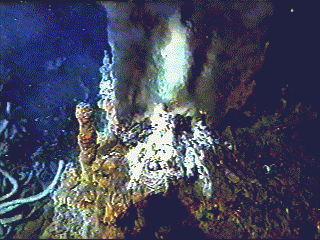“. . .for, as philosopher Erazim Kohák writes: ‘If there is no God, then everything is not a creation, lovingly created and endowed with purpose and value by its creator. It can only be a cosmic accident, dead matter propelled by blind force, ordered by efficient causality. In such a context, a moral subject, living his life in terms of value and purpose, would indeed be an anomaly.’ [. . .] It is within the space of this anonymous dialectic that further discussion of ecology and creativity as active agents in the unfolding of evolutionary time must lie, and from within which more critical and active practices of landscape architecture may emerge.”
cf.
“If there were no eternal consciousness in a man, if at the bottom of everything there were only a wild ferment, a power that twisting in dark passions produced everything great or inconsequential; if an unfathomable, insatiable emptiness lay hid beneath everything, what would life be but despair?”
What can explain the ability of James Corner—way back in 1997—to look unflinchingly into the void at the core of existence and pluck from it a thrilling dialectic—to achieve what so [so!] few have done and transform, rigorously, a metaphysics into an ethics of building without resorting to bullshit or childish wordplay like most [almost all] architects? That is, what power does Corner have over Kierkegaard?
Maybe we’ve been getting climate nihilism backwards; is anthropogenic mass extinction actually the first reasonable argument—ever—for meaning in human life?
Maybe it’s simply the difference between people who grew up in a world where nature made them happy instead of sad (everyone born before 1975, let’s say). Holocene refugees.
Or maybe this just explains why some people become celebrity designers (in this light it is unsurprising that “Ecology and Landscape as Agents of Creativity” passes as “Introduction to Nietzsche for Design Students”).
